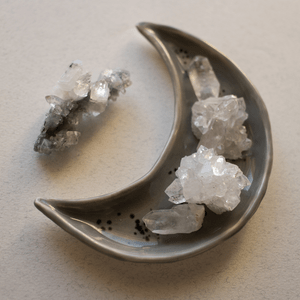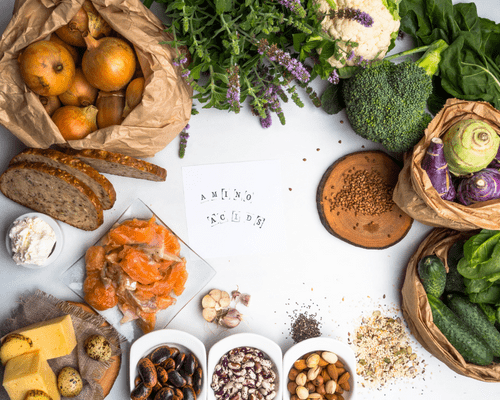Essential oil uses include therapeutic benefits and are used to promote relaxation, reduce stress, improve mood, keep your skin healthy, disinfectant, and more. They are indeed a powerful tool once used correctly.
Essential oils are highly concentrated plant extracts used for various purposes, such as aromatherapy, massage, and skincare. They are typically extracted through steam distillation or cold pressing, producing volatile aromatic compounds.
This article contains everything you need to know to begin using essential oils.

Essential Oil Uses
There is hardly a limit to what essential oils can be used for. Every type of oil has its own benefits, and it is up to the user to understand them to operate efficiently. The oils listed below include some popular ones and some that need to be better known. There are so many types of essential oil out there! Essential oil uses are endless.
Finding the best essential oil that works for you will need to be done by trial and error. Everyone will react differently; thus, knowing a couple of options is good. So don’t be deterred if something does not work on the first try. Keep going until you find one that works.
When I became sick with an ear infection, I used essential oil blends and other natural remedies to nurse myself back to total health. This was during peak Covid, and the world was a mess. Being a pharmacist also has its perks (I knew where to start looking), but through research and desperation, I found a perfect blend of essential oils to help my issue. I did not use any prescription drugs at all.
Some popular uses for essential oils include:
Aromatherapy
Essential oils are widely used in aromatherapy, an alternative medicine in which healing effects are ascribed to aromatic compounds. Essential oil uses include:
- Reduce stress and anxiety: clary sage, lavender, orange, patchouli, rose, vetiver, yuzu
- Ease headaches and migraines: chamomile, eucalyptus, lavender, rose, rosemary
- Improve sleep: cedarwood, chamomile, peppermint, ylang ylang
- Mood boosting: geranium, frankincense, jasmine, lemon
- Meditation: frankincense, helichrysum, lavender, orange, palo santo, patchouli, clary sage, sandalwood
You can create a plethora of different fragrances by experimentally combining essential oils.
Skin Care
Skin care products for their anti-inflammatory, antiseptic, and anti-aging properties. Of course, depending on the condition of your skin plays an important factor when considering your oil of choice. Essential oil uses include:
- Dry skin: chamomile, lavender, sandalwood
- Oily skin: clary sage, frankincense, geranium, neroli, rosemary
- Acne-prone skin: bergamot, cinnamon, lemongrass, oregano, peppermint, rosemary, tea tree, thyme
- Sensitive skin: eucalyptus, frankincense, lavender, sandalwood
- Hyperpigmentation (scars, discoloration): carrot seed, geranium, lemon, neroli, pomegranate, sandalwood

Learn how to make your own luxurious body cream using essential oils here.
Hair Care
These oils nourish and protect the scalp and hair. Essential oil uses include:
- Dry, itchy scalp: tea tree, peppermint, lemongrass, rosemary, chamomile
- Restoring hair shine and moisture: clove, lavender, rosemary, jojoba, patchouli, and ylang-ylang.
- Combat oily scalp and hair: cedarwood, chamomile, eucalyptus, grapefruit, lavender, lemon, rosemary, sage, tea tree, yarrow
- Boosting hair growth: almond, cedarwood, clary sage, jojoba, rosemary
Cleaning
Have you ever considered one of the essential oil uses for cleaning? Probably not. Some oils are naturally antiseptic and antibacterial, making them a prime candidate to add to your cleaning solutions for a nature-friendly cleaning alternative. Some essential oils to consider are:
- Cinnamon
- Eucalyptus
- Grapefruit
- Lavender
- Lemon
- Orange
- Peppermint
- Pine
Alternative Medicine
Many essential oils have antiseptic, antibacterial, and antifungal properties. Essential oil uses include:
- Cold & flu: anise, chamomile, clove, eucalyptus, lavender, marjoram, peppermint, tea tree, thyme
- Sore throat: garlic, ginger, eucalyptus, lemon, peppermint, tea tree, thyme
- Pain: bergamot, chamomile, frankincense, helichrysum, lavender, marjoram, oregano, rose, rosemary, wintergreen, yarrow
- Digestive disorders: anise, fennel, ginger, marjoram
Fun fact: I use clove toothpaste! My teeth have NEVER felt so clean. It took a while to get used to the taste of it, but it was well worth it.
Essential Oil Benefits
- It can be used as an alternative to medicine
- Some oils can treat viral infections
- Offers a non-toxic way to clean your home
- It can improve sleep which can lead to a reduced risk of catching a cold
Make sure to do your research when choosing your essential oil! You don’t want to use essential oil for something it has no capability or use for.
How to Safely Use Essential Oils
The best way to know how to safer use essential oils is to research the oil you’re using. Research, research, research! It is not enough to know what oil can be used for. Confirm whether the essential oil is safe for consumption if that is your intended use. Not every essential oil is safe for consumption.
Due to essential oil being highly concentrated, it must be diluted; start using a few drops and increase slowly. That said, invest in droppers if the essential oil still needs to come with one.
To safely use essential oils aromatically, you can:
- Use a diffuser or humidifier.
- Mix it with a carrier oil, apply it to your hands, and inhale deeply.
- Add essential oils onto a plug-in wax warmer; add water to the warmer plate with a few drops of oil.
- Place hot, boiled water into a bowl and add a few drops of oil. Lean over the bowl and place a towel over your head to inhale the fragrant steam.
When adding essential oil to your lotion or shampoo, use a dropper to add the oil into your product slowly. Periodically test the mixture on your skin. You want to create a well-balanced blend that is pleasing to your nose while not irritating the skin.
If you are using essential oil for consumption, I recommend researching the recommended ratios. All essential oils are not created equally.
Do those with skin sensitivities need to be careful when using essential oils?
Yes, people with skin sensitivities should be careful when using essential oils. Essential oils can be very potent and cause some people skin irritation or allergic reactions. It is important to do a patch test before using any essential oil on the skin and to dilute essential oils with carrier oil before applying them to the skin. People with skin sensitivities should also avoid using essential oils on broken or irritated skin.
How Does Essential Oil Differ from Aromatherapy Oil?
Essential oils are concentrated, volatile, aromatic liquids extracted from flowers, leaves, stems, bark, roots, and other parts of plants. Aromatherapy oils are usually a combination of essential and carrier oils, such as jojoba, almond, or coconut. Aromatherapy oils are used to create a pleasant scent and promote relaxation.
Oils labeled as aromatherapy oils are not pure. Please do not use them for anything other than their specified use.

Essential Oil Tips
All of these essential oil tips are incredibly important. Please read each of these carefully before you begin using your oils.
- DO NOT apply essential oil directly to your skin. Always dilute it to avoid burns or irritation.
- Dilute with water or carrier oil. Possible carrier oils include almond, apricot seed, cast, coconut, jojoba, olive, and more.
- Incorporate essential oil slowly. Use a dropper to add essential oil to your mixtures. Add a few and then test it; adding too much essential oil can irritate or overpower your sense of smell. Too much of a good thing can become a bad thing.
- Purchase pure essential oil. Essential oil can seem pricey, but it is worth your price. If you skimp on the price, there is a high chance the ‘essential oil’ you bought will contain other things.
- Research the essential oil you are trying to use, and make sure it aligns with the purpose you are using it for.
Read more about essential oils used in healing…
Chamomile: A herbal medicine of the past with bright future
Essential oils and ‘aromatherapy’: their modern role in healing



